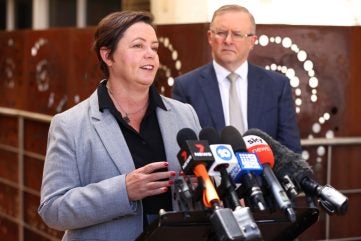
Australia’s Federal Government has added nickel to its list of critical minerals, opening the door to subsidies support from a A$6bn ($3.9bn) stimulus fund as the country looks to keep the ailing industry afloat.
The announcement comes amid a drawn-out slump in global nickel prices caused primarily by an oversupply of weaker-grade ore from Indonesia, where industry is dominated by Chinese producers.
Canberra’s intervention, announced on Friday, highlights concern for the future of the metal, which is used to make energy transition technologies such as batteries used in electric vehicles.
Australia’s Minister for Resources, Madeleine King, said the government needed to be “proactive” in supporting nickel producers, warning that nickel operations in the country are currently “at risk”.
“The international nickel price is forecast to stay relatively low through 2024, and likely for several years to come until the surplus of nickel in the market is corrected,” she added.
With nickel added to the list, companies will have access to financing under the A$4bn Critical Minerals Facility and critical minerals-related grants such as the International Partnerships Programme.
Several major miners have recently announced plans to exit nickel projects in Australia and elsewhere. Mining giant BHP said on Thursday that it is considering closing its nickel operations in Western Australia because continued low prices make business unsustainable.
At the beginning of this week, Glencore said it will sell all of its 49% stake and suspend operations at the Koniambo Nickel project in New Caledonia, citing a repeated failure from the mine and processing plant to turn a profit over the past decade.
In January, First Quantum also announced plans to cut production and slash workforces at its Raventhorpe mine in Australia, which posted an operating loss of $66m at the end of September 2023.
Earlier this month, King urged buyers to consider paying a premium for more sustainable, higher-grade nickel to level the playing field with Indonesia, which mostly produces nickel pig iron, a cheaper type of low-grade ore used mainly for steelmaking.
On Tuesday, it was reported that China and Indonesia are both set to cut nickel output by at least 100,000 tonnes (t) this year in a bid to raise market prices. So far, cuts have removed more than 230,000t for this year – approximately 6% of supply – but analysts say this has not been enough to bolster prices.



